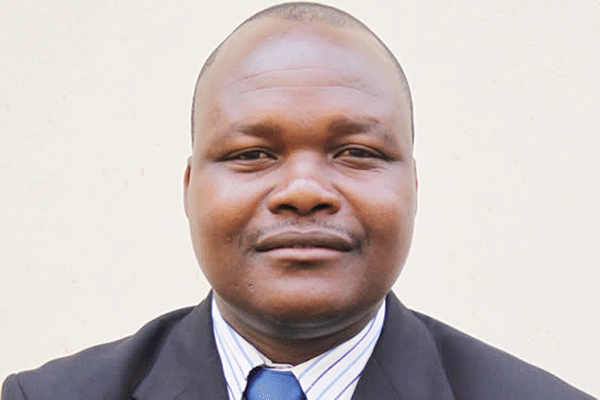
HIGHER and Tertiary Education deputy minister Godfrey Gandawa yesterday rapped lecturers, saying the content taught at local institutions of higher learning were decades behind the rest of the world as lecturers were reluctant to further develop their academic skills to suit international standards.
By MTHANDAZO NYONI/KHANYILE MLOTSHWA

Gandawa told guests at a business luncheon held in Bulawayo that most lecturers at local universities and colleges were not researching and keeping up to date with developments elsewhere, hence, their reliance on what they learned 30 years ago.
“Currently, we see most of our institutions training for the sake of training,” he said.
“We need to move away from that. We are training what was being trained 20 or 30 years ago. The lecturers are just transferring what they learnt 30 years ago to current students. If we are applying the same thing in industry, it means we continue to invest in dead industries.”
He added: “The curriculum that we are using currently has to change lest we are training for dead industries. We are not training for the future industries, we are not training for the future jobs. Since we are training for dead industries, the results are that we will have so many graduates in the streets. We lack innovation. Our curriculum lacks innovation. Institutions of higher learning need to work closely with industries to find out what technologies are in industry or what technologies are going to be in industry in the next five to 10 years and we start to train for these specific industries and allow the dead industries to rest in peace.”
Gandawa said it was important to embrace STEM (Science, Technology, Engineering and Mathematics) learning areas because, “the world over, the economies are now driven by knowledge, research and development”.
“We are now living in a digital economy and if as Zimbabweans we don’t adapt to it, then we will never industrialise or modernise,” he said.
- Chamisa under fire over US$120K donation
- Mavhunga puts DeMbare into Chibuku quarterfinals
- Pension funds bet on Cabora Bassa oilfields
- Councils defy govt fire tender directive
Keep Reading
The deputy minister said it was a Sadc resolution that STEM should drive the industrialisation of the region and STEM must now start from early childhood development to university.
Zimbabwe Manpower Development Fund chief executive officer Fredrick Mandizvidza said their emphasis on sciences and industrialisation was meant “to create people who were able to confront problems and find solutions”.
“If we look at our roads today, our town planning, our energy infrastructure, and our water problems, these speak volumes about the calibre of our engineers,” he said. “I, therefore, hazard to say that the kind of engineer we have today was not adequately prepared for the challenges we have today. I find it hard that any engineer would find it comfortable to co-exist with potholes.”











